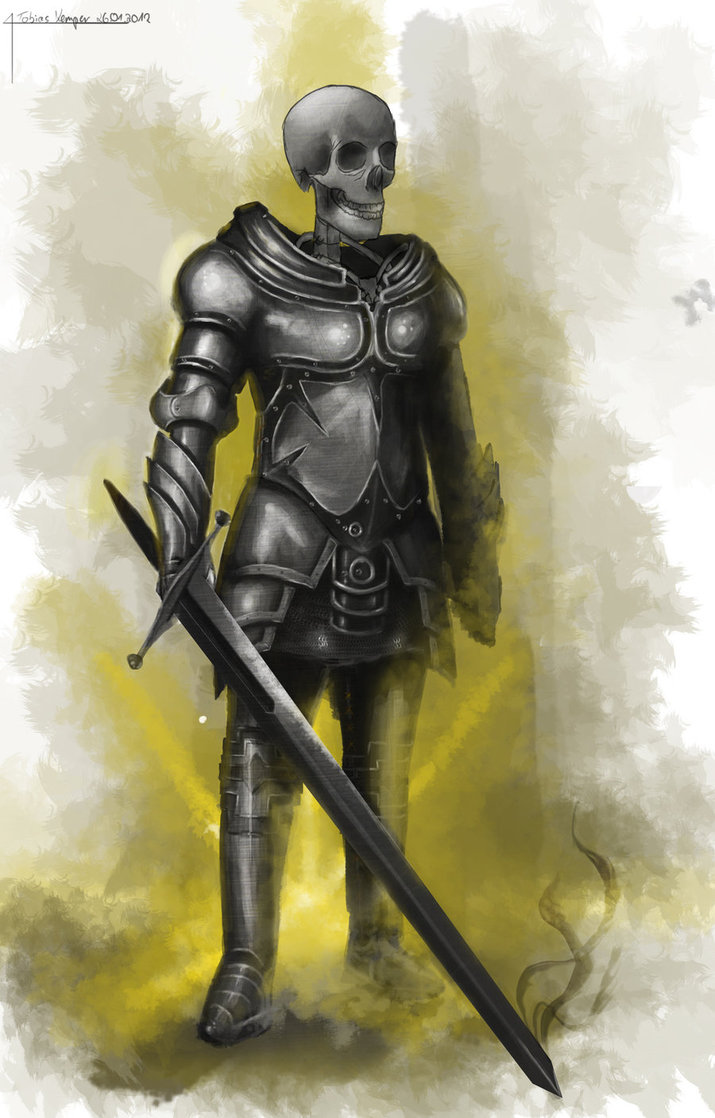Skeleton Knight (5e Creature)
Skeleton Knight[edit]
|
Medium undead, lawful evil Armor Class 18 (plate)
Proficiency Bonus +2 Brave. The skeleton has advantage on saving throws against being frightened. Marshal Undead. Unless the skeleton is incapacitated, it and undead creatures of its choice within 60 feet of it have advantage on saving throws against features that turn undead. ACTIONSGreatsword. Melee Weapon Attack: +5 to hit, reach 5 ft., one target. Hit: 10 (2d6 + 3) slashing damage. Heavy Crossbow. Range Weapon Attack: +3 to hit, reach 100/400 ft., one target. Hit: 6 (1d10 + 1) piercing damage. Leadership (Recharges after a Short or Long Rest). For 1 minute, the skeleton can utter a special command or warning whenever a nonhostile creature that it can see within 30 feet of it makes an attack roll or a saving throw. The creature can add a d4 to its roll provided it can hear and understand the skeleton. A creature can benefit from only one Leadership die at a time. The effect ends if the skeleton is incapacitated. BONUS ACTIONSConsume Life. The skeleton targets one creature it can see within 5 feet of it that has 0 hit points and is still alive. The target must succeed on a DC 10 Constitution saving throw against this magic or die. If the target dies, the skeleton regains 21 (6d6) hit points. REACTIONSParry. The skeleton adds 2 to its AC against one melee attack that would hit it. To do so, the skeleton must see the attacker and be wielding a melee weapon. |
 A skeleton knight armed and ready, Source When a knight dies and becomes a skeleton, they usually take the form and title of a skeleton knight. This makes them more powerful and valuable than a common skeleton, but also harder to control and give orders to. Most skeleton knights seek freedom from their masters, and commonly ride the same mount as they did in life. |
Back to Main Page → 5e Homebrew → Creatures
